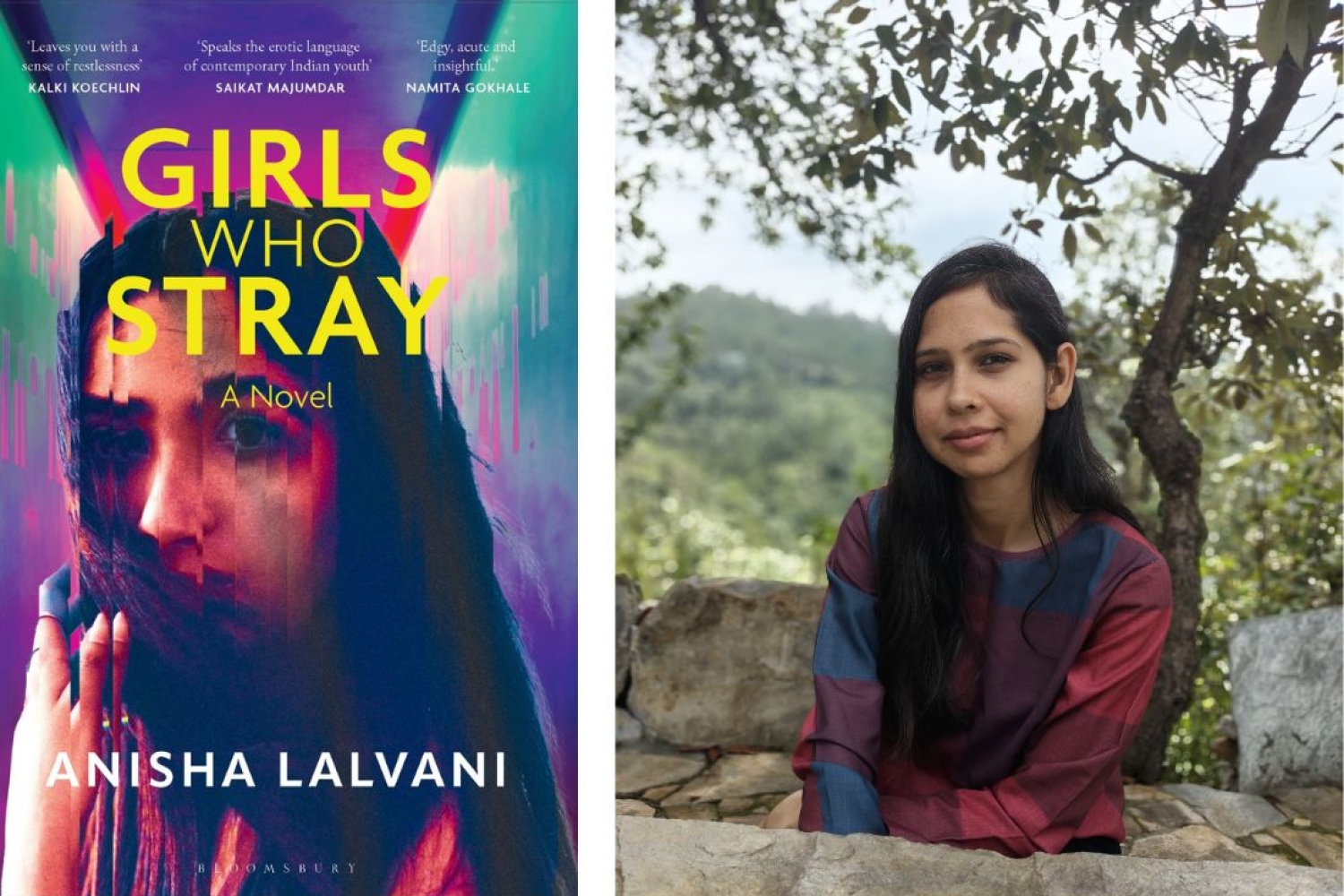

Anisha Lalvani’s debut novel Girls Who Stray blends the tension of a thriller with the raw vulnerability of a coming-of-age story of an unnamed 23-year-old protagonist. The novel deftly explores themes of modernity, identity, and the complexities of love, all while addressing the underlying violence and inequality that simmer beneath the surface of contemporary Indian society.
From the exploration of gender dynamics and the underbelly of suburban life, to the integration of crime and thriller elements, Lalvani discusses with us on how she balanced these seemingly disparate themes and why she chose to set the novel in Delhi.
INSPIRATIONS
I think there were many, many inspirations. Actually, more than the story or the plot, I was really driven to write about a few things that I was feeling, and that I noticed my peers and friends were feeling too. I really wanted to explore themes of modernity, alienation, and the sense of being left behind in an economy that’s moving at a very fast pace. It’s about not being able to fully grasp it, not being able to engage with it, and not quite coming to terms with it.
I feel like India—and the world in general—has changed so quickly in such a short time that people are kind of negotiating everything on the fly. We haven’t really processed a lot of it, and maybe we never will. But I wanted to dive into those feelings. I also wanted to write about feminism and how my own heartbreak coincided with the Nirbhaya protests, which were a huge moment for gender issues and discussions on violence against women. That’s when I started thinking about writing something that connected personal heartbreak with these larger societal and gender questions.
SETTING IN DELHI
I lived in Delhi for some time, about ten years ago. I worked in publishing with Yoda Press and later with Namita Gokhale, who does the JLF, on a bunch of projects. I’ve always found Delhi fascinating. I read a couple of books on Delhi that had a big influence on me, including Deepti Kapoor’s Bad Character and Rana Dasgupta’s Capital.
Delhi is a really interesting city, but also a weird one. There’s a lot of trauma there, especially when it comes to the partition and how people are still dealing with its impact. I wanted to base the character and setting in a suburban complex that feels far from the center. In Delhi, you can physically see that kind of segregation—places like Connaught Place and the central areas feel very different from the outskirts. I wanted to highlight that feeling of alienation, which I felt more strongly in Delhi. And, of course, with the gender questions and the context of violence against women, Delhi seemed like the natural setting. It’s a city that’s constantly in conversation about these issues, so it made sense for the story to unfold there.
BALANCING THE GENRES OF COMING-OF-AGE AND THRILLER
I was leaning more toward the coming-of-age aspects —the themes, the experiences, the learnings. But then I felt like it was veering into this abstract, indulgent territory, and I started to wonder, ‘Why would the reader care? What’s the point?’ There had to be something running through the entire coming-of-age narrative, or else it would just feel like random experiences that the narrator was having.
I was also really interested in the case that inspired the book—the Nithari murders in Delhi, which happened around 20 years ago. I wrote about that, and it was only much later that I realized I was also writing about inequality. The case was about inequality because it involved the murder of poor children, and for years, their parents couldn’t even file FIRs. The issue was systemic, and inequality was a central theme. Balancing the thriller element with the coming-of-age aspect was tough, but I knew I had to make it work for the narrative to move forward.
CHALLENGES AS A DEBUT AUTHOR
I’ve been working on this for a very long time—about 7-8 years. At one point, I gave it up and focused on other things, but eventually, I came back to it. My biggest takeaway has been persistence. You can feel that you have some talent or a way with words, but honestly, that’s not the most important thing. A well-established writer once told me, ‘You just have to show up.’ It’s like a job—you show up every day, and the writing happens. One sentence leads to the next, one scene follows another. Now, people ask me how I got a good publisher or agent, but really, I just believed in myself and my voice. It’s about being patient and letting the process take time. Good writing takes time, especially for your first book, and it should feel hard. I was fortunate to have a great agent, an amazing editor, and a supportive marketing team to help bring the book to life.
Words Paridhi Badgotri
Date 25.11.2024